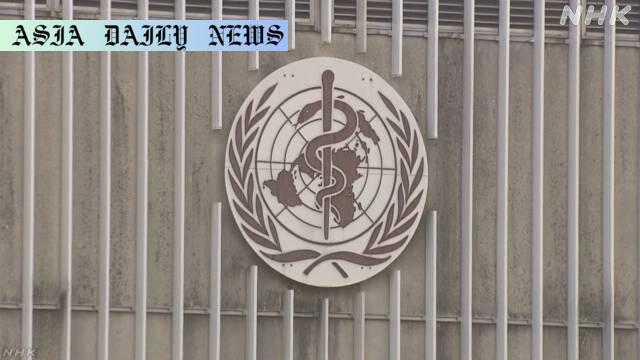WHO urges the US to reconsider withdrawal, emphasizing past joint achievements, including eradicating smallpox.
The World Health Organization has expressed regret over the US withdrawal announcement.
WHO highlights joint global health success stories like smallpox eradication.
WHO seeks constructive dialogue, urging the US to reconsider its decision.

Introduction: A Widening Gap in Global Health Collaboration
The announcement of the United States’ intended withdrawal from the World Health Organization (WHO) has sent ripples throughout the international community. This decision, spearheaded by President Donald Trump, is set to sever one of the most critical partnerships in global health. In response, the WHO has issued a statement expressing deep regret and has urged the US to reconsider. This comes as a blow to an alliance historically responsible for groundbreaking achievements, including the eradication of smallpox.
The Legacy of Cooperation Between the US and WHO
The longstanding relationship between the US and the WHO has yielded significant results in tackling global health crises. From combating the HIV/AIDS epidemic to responding to pandemics like H1N1 and Ebola, this partnership has saved countless lives. One of its most historic achievements was the eradication of smallpox, where US leadership and WHO’s global coordination played a pivotal role. Despite these successes, the current administration’s concerns regarding WHO’s alleged inefficiency and perceived bias have led to the drastic decision to withdraw.
The WHO’s Response: A Plea for Dialogue
In its statement, the WHO highlighted the immeasurable collaborative achievements made possible through its partnership with the US. The organization underscored the need to work together to address ongoing and emerging threats to global health. With issues like COVID-19 still at the forefront, the WHO has emphasized the risks of disengagement, suggesting that global challenges cannot be resolved in isolation. By extending an invitation for constructive dialogue, the WHO hopes to rebuild trust and reinstate the US into its leadership role within the organization.
Broader Implications of the US Withdrawal
The consequences of the US withdrawal extend far beyond the WHO. Funding cuts threaten to derail critical health programs, particularly in low-income countries that rely on WHO resources. The absence of US leadership in global health initiatives also creates power vacuums that could be exploited by other nations, shifting the balance of global influence. The United Nations, of which the WHO is a specialized agency, could also face systemic challenges as member states reassess their roles and commitments.
The Path Forward: Building Bridges
Amidst the tension, there remains hope for reconciliation. Experts argue that global health security requires collective action, and the US has a vested interest in remaining engaged with an organization that facilitates international health cooperation. By fostering discussions around reform and addressing concerns, a renewed partnership could emerge, potentially stronger and more effective than before. The ultimate goal remains the same: to protect and uplift the health of populations worldwide.
Conclusion: A Critical Juncture in Global Health Leadership
As the world grapples with unprecedented health challenges, every nation’s participation is crucial. The US decision to withdraw from the WHO represents a critical juncture not only in global health leadership but also in diplomatic relations. While the WHO expresses regret, it also extends an olive branch, hoping that diplomacy and a shared vision for health equity will prevail. The coming months will determine whether this partnership can be revived or whether the world will have to adapt to a new paradigm of global health governance.
Commentary
The Unprecedented Decision and Its Timing
The decision by the United States to withdraw from the World Health Organization comes at a time when the global community is relying heavily on international collaboration to address pressing health crises. One cannot ignore the urgent need for cohesive strategies to combat pandemics like COVID-19, and the US, with its resources and expertise, has always been a key player in these efforts. The timing of this announcement raises questions about its impact on global health, especially given the interconnected nature of modern threats.
Global Health: A Shared Responsibility
Global health knows no borders. Viruses, diseases, and health crises do not discriminate based on geography or politics, making international cooperation essential. By withdrawing from the WHO, the US risks sending a message of disengagement, potentially leaving vulnerable nations at risk. Furthermore, the ripple effects of this decision could undermine decades of progress and weaken institutions designed to ensure collective well-being. Shared responsibility is the cornerstone of global health, and this principle must guide future actions.
A Call for Dialogue and Reengagement
While the announcement of the US withdrawal is undoubtedly concerning, there is still room for optimism. The WHO’s appeal for constructive dialogue signals a willingness to address criticisms and reform where necessary. This moment presents an opportunity for global leaders to come together and ensure that the WHO remains a credible and effective institution. By prioritizing public health over political differences, nations can reaffirm their commitment to a healthier and more equitable world.


